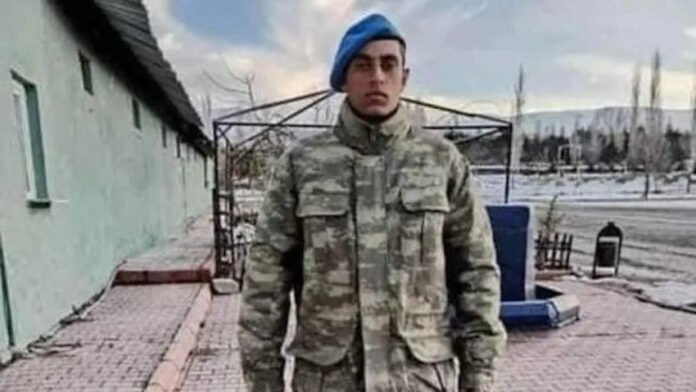Caner Sarmaşık, 20, a conscript who was being targeted for being a Roma, died allegedly by suicide while on guard duty on April 29, Turkish media reported.
According to his family Sarmaşık told them during a phone call a week before his death that he was being targeted with hate speech by his commander for being a Roma. Sarmaşık was illiterate and couldn’t memorize what was written on his tag. His commander allegedly humiliated him in front of other conscripts, saying: “You gypsies only know how to play drums and dance. You can’t even memorize a brief text.”
Özcan Purçu, a deputy from the main opposition Republican People’s Party (CHP), posed parliamentary questions to Defense Minister Hulusi Akar about the allegations. Purçu said Sarmaşık was killed not by his own weapon but by another weapon and, according to the autopsy, the shooting distance was unknown. Purçu asked if any investigations were being conducted into Sarmaşık’s death and the allegations of hate speech.
Speaking to reporters after paying a visit to Sarmaşık’s family, Purçu said they would follow the case closely and asked the family and neighbors to be patient and wait for the investigation to be completed.
CHP İzmir Milletvekili Özcan Purçu, askerlik görevini yerine getirirken intihar ettiği belirtilen Er Caner Sarmaşık'ın ailesini ziyareti etti ve açıklamalarda bulundu.@ozcanpurcu pic.twitter.com/Aj4I1cm1YH
— İz Gazete (@izgazete) May 5, 2021
According to Suspected Deaths and Victims Association (Şüpheli Ölümler ve Mağdurları Derneği), a non-profit working for the victims of suspicious deaths in the military, more than 3,000 soldiers died under suspicious circumstances in military barracks between 2000 and 2020, and the foundation has received applications from the families of seven such victims over the past two months.
Many irregularities have been revealed about the suspicious deaths of soldiers. Some of them were shot in the back or in the back of the head. Some were shot more than once, and right-handed soldiers were found with bullet wounds to their left temples. It was found that some even had been operated on to hide head wounds before their funerals.
The cause of death of hundreds of soldiers who died while performing their military service has gone into the official records as suicides or accidents for years; however, the families of these soldiers express doubts over the official version of the deaths.
Turkey’s Constitutional Court ruled in several cases that the soldiers’ right to life was violated and that an effective investigation was not conducted into the deaths.
According to Rıza Doğan, who heads the foundation and who lost his 20-year-old son under suspicious circumstances while doing his compulsory military service in the southeastern province of Muş in 2012, around 80 percent of the soldiers who died under suspicious circumstances in the Turkish army were Kurds or Alevis.















